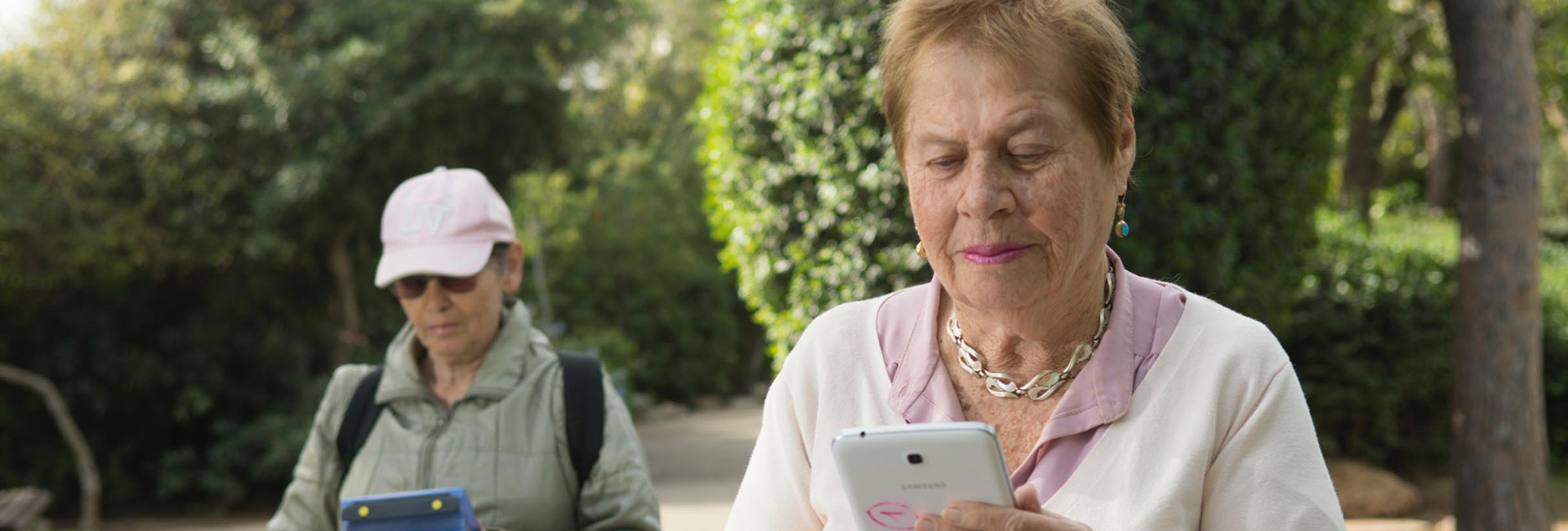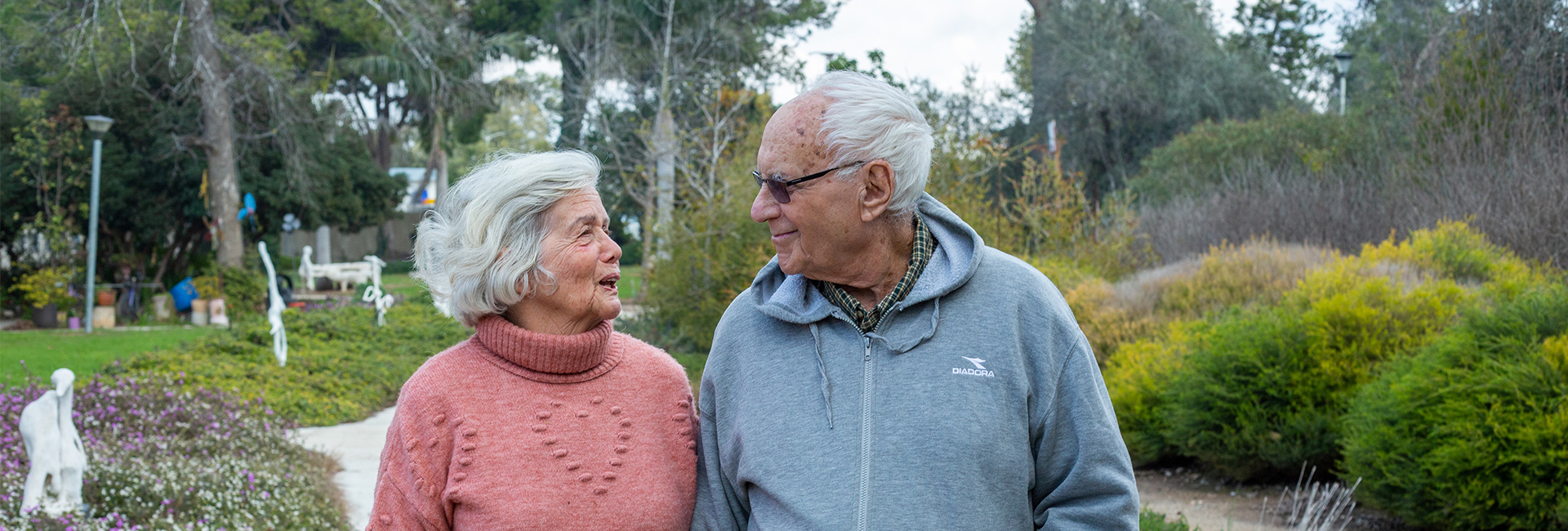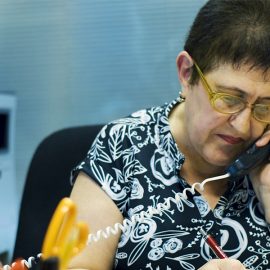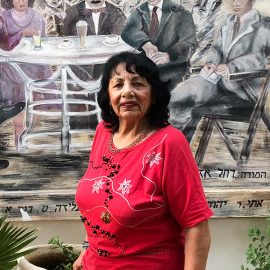Current Measures
NIS 14.5 billion
Spent on nursing care annually
and Israel’s older adult population will double in 15 years. the biggest growth in those who are frail
Only 28%
of adults 65+
in Israel participate in the work force – and most will have to finance 2 or 3 decades of life
$2,270
The average wage
of adults 65+ in Israel, at a time in life when healthcare and medical costs increase
The Challenge
Retirees are prone to deterioration in their financial capacity and their functional ability, as well as to a loss of the sense of meaning and belonging. Low-and middle-income retirees are at high-risk for financial deterioration because they often have small or non-existent savings and/or pensions to finance what may be decades of old age – which typically come with increasing health costs.
It is known that financial distress in older adults increases the risk of deterioration in functional ability, mental health and wellbeing, and the ability to live independently throughout old age. This means an increase of dependence on public or social services in general, and on family members in particular. Today, approximately 226,000 older adults in deteriorating health receive public services, constituting 2.5% of the Israeli population.
In light of the fast-expanding size of the older adult population in Israel and especially that of older adults in functional decline, there is concern that Israel will not be able to meet the demand for services. Public spending on health and nursing care is expected to increase from 10.7% of GDP to 12.4% in 40 years.
Worth Knowing
• Retirement is ranked 10th out of 43 events that raise stress in a person’s life.
• Only 45% of Israelis past retirement age have a pension, and 20% of Israeli adults over 65 live in poverty
• The average life expectancy of a person in Israel who reaches the age of 60 is another 17.8 years
Actions
Supportive Communities
Goals: To provide specialized care based on variables such as age, background, health and environment, and to postpone the need for institutional assistance. The Need: The Supportive Community program was developed by Joint-Eshel and the Ministry of Labor, Social Affairs and Social Services to assist older adults who want to live at home and maintain […]
Day Centers for Older Adults
Goals: To provide senior citizens and their families with a support system that enables them to live an independent and normal life at home. To encourage and create opportunities for social involvement in the community. To ensure access to services, help maintain and strengthen functional ability, prevent deterioration, and postpone the need for assisted living. […]
ActiveNet: Promoting a Healthy Lifestyle
Goals: ActiveNet is a digital information system that increases the use of data and services to preserve motor and cognitive functions. Customized features enable older adults to perform a self-examination, locate services, and receive recommendations for assistance in their area of residence. For policymakers, the system can be used as a data base for analysis […]
Leisure Activities for Homebound People in Supportive Communities
Goals: Participation in leisure activities for older adults who are confined to their homes, utilizing their talents and time. This strengthens their sense of being an active, vital and contributing part of society and helps alleviate loneliness. The Need: Today over 20% of members in supportive communities are defined as homebound for various reasons: physical, […]
Diagnosis, Treatment and Release for People with Dementia
Goals: Optimal treatment of patients with dementia and delirium, diagnosis upon admission to the hospital, appropriate care while preventing complications, release coordinated with family members and community services. The Need: There are between 120,000 and 150,000 people with dementia in Israel, constituting up to 22% of older people population. A survey by the Ministry of […]
Digital Literacy
Goals: To promote digital literacy among older adults in an effort to help them age actively while improving their abilities for functioning physically, socially, and economically. The Need Many studies point to the positive impact of internet-connected computer proficiency on the mental and physical health of those aged 65+. Using a connected computer creates a […]
Up60+ Guidance Centers
Goal: To help senior citizens age actively and successfully. The Need: People at retirement age are defined as senior citizens and must deal with the aging process, but there is a lack of public and social services in Israel to support this. Up60+ Centers are a professional, urban address for planning and managing a person’s […]
60+ Employment Centers
Goals: To prolong careers to match longer life expectancy, enabling people to continue to develop personally, professionally, socially, and economically. The Need: Due to the increase in life expectancy and good health, people often continue to work after retirement age. With life expectancy now at 82, pensions have to last 20 years or more. However, […]
Misgav: Community-Based Rehabilitation Centers for Older Adults
Goals: To develop a sustainable model that expands rehabilitation therapy for older people. To incorporate the following five elements into the model: providing community intervention; providing centralized and preventive care; promoting a healthy lifestyle; involving the community in health maintenance and referral of patients to Misgav; and increasing professional supervision of older adults. The Need: […]
Family Caregivers in the Workforce
Goals: To encourage employers to be sympathetic to workers who are caring for relatives in order to ensure optimal care for older adults while preserving the quality of life of the caregiver, and protecting healthy family functioning. The Need: There are about 1.5 million people in Israel who are caring for a relative due to […]
Coordination-Treatment Program Using an Integrated Model
Goals: To balance, preserve, and improve independent living for those suffering from medical, functional, and social problems by maximizing the use of available public services. To build an innovative, community-based model to deal with the problems generated by decentralized systems of care and improve services for older people and their families through a person-centered approach. […]




